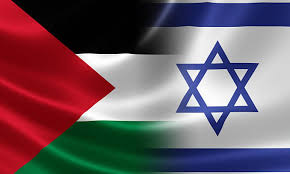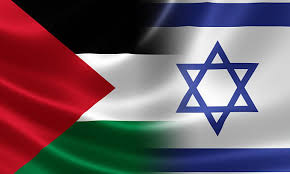
As the Gaza conflict extends into its 15th month, recent diplomatic efforts have brought a potential ceasefire between Israel and Hamas within reach. Negotiators convened in Doha on January 13, 2025, to finalize the terms of an agreement that could halt hostilities and facilitate the release of hostages. This development follows a significant breakthrough in discussions mediated by Qatar, with active involvement from both the outgoing U.S. administration of President Joe Biden and the incoming team of President-elect Donald Trump.
Progress in Negotiations
Mediators have presented a final draft of the ceasefire agreement to both Israel and Hamas. The proposed deal aims to end the ongoing war, ensure Israel's security, and significantly increase humanitarian aid to Palestinians affected by the conflict. A key component of the agreement is the exchange of hostages held by Hamas for Palestinian detainees in Israeli custody. If successful, this would mark the most substantial release of Israeli hostages since the early stages of the conflict.
U.S. National Security Adviser Jake Sullivan expressed optimism, stating that the parties are "right on the cusp" of finalizing the deal. Similarly, U.S. Secretary of State Antony Blinken emphasized that the decision now rests with Hamas, which has indicated its eagerness to reach an agreement. Israeli Foreign Minister Gideon Saar acknowledged the progress, thanking American counterparts for their substantial efforts in securing a potential deal.
Details of the Proposed Agreement
The initial phase of the agreement proposes the release of 33 hostages, including children, women (some of whom are female soldiers), men over 50, and individuals who are wounded or ill. In exchange, Israel would release a corresponding number of Palestinian detainees, excluding those convicted of murder or deadly attacks. Subsequent negotiations would address the release of remaining hostages and the return of deceased individuals.
The ceasefire would involve a phased withdrawal of Israeli troops from Gaza, with forces remaining along the border perimeter to defend Israeli towns and villages. Security arrangements in the Philadelphi corridor, along Gaza's southern edge, would be established, with Israel withdrawing from certain areas after the initial days of the agreement. Unarmed residents of northern Gaza would be permitted to return, with mechanisms in place to prevent the movement of weapons into these areas.
Challenges and Considerations
Despite the progress, several challenges persist. Hamas has consistently demanded that any deal lead to a permanent end to the war and a complete Israeli withdrawal from Gaza. Conversely, Israel maintains that the war will not conclude until Hamas is dismantled. The impending inauguration of President-elect Donald Trump on January 20, 2025, adds urgency to the negotiations, as his administration has signaled a more hardline stance, with Trump warning of severe consequences unless hostages are freed before he takes office.
The humanitarian crisis in Gaza further complicates the situation. Since the onset of the conflict in October 2023, over 46,000 Palestinians have been killed, according to health officials, with significant displacement and destruction across the enclave. The international community continues to press for a resolution that addresses both security concerns and humanitarian needs.
International Mediation Efforts
Qatar has played a pivotal role in mediating the negotiations, hosting discussions and facilitating communication between the parties. The involvement of both the outgoing and incoming U.S. administrations underscores the significance of the ceasefire efforts. President Biden has been actively engaged in the process, seeking to secure a foreign policy achievement before leaving office, while President-elect Trump's team has participated to ensure continuity and support for the proposed deal.
The potential ceasefire agreement between Israel and Hamas represents a critical opportunity to end a protracted and devastating conflict. While significant progress has been made, the success of the deal hinges on resolving remaining contentious issues and securing commitments from both sides. The coming days are crucial as negotiators work to finalize an agreement that balances security, political, and humanitarian considerations, offering a glimmer of hope for peace in a region long marred by strife.
(Source:www.tbsnews.in)
Progress in Negotiations
Mediators have presented a final draft of the ceasefire agreement to both Israel and Hamas. The proposed deal aims to end the ongoing war, ensure Israel's security, and significantly increase humanitarian aid to Palestinians affected by the conflict. A key component of the agreement is the exchange of hostages held by Hamas for Palestinian detainees in Israeli custody. If successful, this would mark the most substantial release of Israeli hostages since the early stages of the conflict.
U.S. National Security Adviser Jake Sullivan expressed optimism, stating that the parties are "right on the cusp" of finalizing the deal. Similarly, U.S. Secretary of State Antony Blinken emphasized that the decision now rests with Hamas, which has indicated its eagerness to reach an agreement. Israeli Foreign Minister Gideon Saar acknowledged the progress, thanking American counterparts for their substantial efforts in securing a potential deal.
Details of the Proposed Agreement
The initial phase of the agreement proposes the release of 33 hostages, including children, women (some of whom are female soldiers), men over 50, and individuals who are wounded or ill. In exchange, Israel would release a corresponding number of Palestinian detainees, excluding those convicted of murder or deadly attacks. Subsequent negotiations would address the release of remaining hostages and the return of deceased individuals.
The ceasefire would involve a phased withdrawal of Israeli troops from Gaza, with forces remaining along the border perimeter to defend Israeli towns and villages. Security arrangements in the Philadelphi corridor, along Gaza's southern edge, would be established, with Israel withdrawing from certain areas after the initial days of the agreement. Unarmed residents of northern Gaza would be permitted to return, with mechanisms in place to prevent the movement of weapons into these areas.
Challenges and Considerations
Despite the progress, several challenges persist. Hamas has consistently demanded that any deal lead to a permanent end to the war and a complete Israeli withdrawal from Gaza. Conversely, Israel maintains that the war will not conclude until Hamas is dismantled. The impending inauguration of President-elect Donald Trump on January 20, 2025, adds urgency to the negotiations, as his administration has signaled a more hardline stance, with Trump warning of severe consequences unless hostages are freed before he takes office.
The humanitarian crisis in Gaza further complicates the situation. Since the onset of the conflict in October 2023, over 46,000 Palestinians have been killed, according to health officials, with significant displacement and destruction across the enclave. The international community continues to press for a resolution that addresses both security concerns and humanitarian needs.
International Mediation Efforts
Qatar has played a pivotal role in mediating the negotiations, hosting discussions and facilitating communication between the parties. The involvement of both the outgoing and incoming U.S. administrations underscores the significance of the ceasefire efforts. President Biden has been actively engaged in the process, seeking to secure a foreign policy achievement before leaving office, while President-elect Trump's team has participated to ensure continuity and support for the proposed deal.
The potential ceasefire agreement between Israel and Hamas represents a critical opportunity to end a protracted and devastating conflict. While significant progress has been made, the success of the deal hinges on resolving remaining contentious issues and securing commitments from both sides. The coming days are crucial as negotiators work to finalize an agreement that balances security, political, and humanitarian considerations, offering a glimmer of hope for peace in a region long marred by strife.
(Source:www.tbsnews.in)





